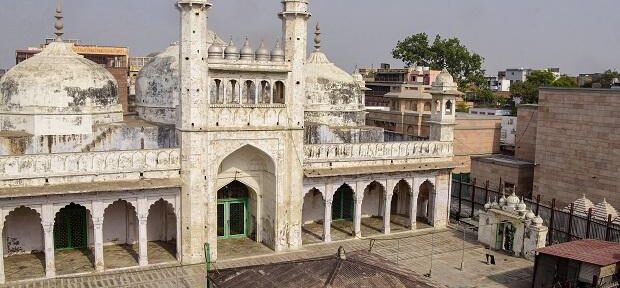A former senior ASI official has said that the ground penetrating radar (GPR) technology being used in the ongoing scientific survey of the Gyanvapi mosque complex can detect if any structure is buried beneath the mosque.
The Archaeological Survey of India (ASI) on Saturday resumed its scientific survey work at the Gyanvapi mosque in Varanasi, Uttar Pradesh to determine whether the 17th-century mosque was constructed over a pre-existing structure of a Hindu temple.
Former additional director general of the ASI B R Mani said radar technology or ground penetrating radar (GPR) technology involves certain types of equipment.
“These equipment are kept on the ground and electromagnetic waves or pulses are sent on the sub-surface level below the ground. These pulses come in contact with any anomaly like bricks, sand, stone, and metals and it is recorded on a monitor,” said Mani, who is the Director General of the National Museum here.
“Experts study it and make the alignment after which they get to know if there is anything solid present beneath the ground,” he said.
“If this survey (using GPR technology) is done in Gyanvapi, it will be possible to find out if any structure is buried under the mosque and what kind of structure it is,” he added.
Mani said the GPR technology must be used under expert supervision.
Talking about carbon dating, Mani said, it is used in case of organic samples like wood or bones which have traces of carbon-14 and are not contaminated.
“They are carefully collected and sent to the lab,” he said.
The Supreme Court on Friday refused to stay the Allahabad High Court order on the ASI survey of the Gyanvapi mosque, an exercise that the Muslim side says will “reopen wounds of the past”.
The Supreme Court’s nod on Friday came just hours after an ASI team had already resumed the detailed scientific survey ordered by the Varanasi district court on July 21.
On Friday, the Varanasi court also granted the ASI an additional month to complete the survey, extending its original deadline from Friday to September 4.
(Only the headline and picture of this report may have been reworked by the Business Standard staff; the rest of the content is auto-generated from a syndicated feed.)
